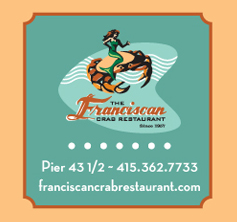
You can manage pests without pesticides by using physical barriers, biological controls (introduction of pest predators or pest-targeting microbes), and cultural controls (good housekeeping and gardening practices).
IN YOUR HOME
If you have problems with cockroaches or ants, deny them access to the food and water they seek by following these guidelines:
• Store food in the refrigerator or in tightly sealed containers.
• Keep areas clean and tidy by thoroughly cleaning counters and floors daily in eating and food preparation areas. Don’t leave dirty dishes out overnight.
• Remove all garbage containing food scraps nightly.
• Clean recyclables before storing.
• Place pet food and water bowls in a moat of soapy water nightly.
• Keep all areas dry; fix leaky plumbing.
• Seal cracks and crevices by caulking and painting cracks around baseboards, cupboards, pipes, and sinks. Use mildew-resistant caulk in moist areas. Weather-strip around doors and windows and repair holes in screens.
IN YOUR GARDEN
Choosing the right plants is one of the most important preventative steps in the pest management process.
• Select plants that are adapted to the soil conditions as well as the sun and shade characteristics of your space. It’s easier to plant compatible species for your site than to alter the growing conditions.
• Select pest- and disease-resistant plants.
• Choose healthy specimens to plant, and care for them properly.
• Plant a diversity of species so a single pest problem will not devastate your entire landscape.
• Include a variety of plants that attract beneficial creatures (such as dragonflies, ladybugs and lacewings) that feed on pests.
Once you attract beneficial insects, make sure you keep them by reducing or eliminating the use of broad-spectrum pesticides. Birds, pollinators and other beneficial insects are often far more sensitive to pesticides than the pests you’re trying to kill. Once pesticides eliminate the beneficial insects, pests are free to multiply without a natural check. As pest populations rise, you may be tempted to spray more frequently, but pesticides leave genetically resistant strains of pests to breed, creating an increasingly resistant pest population. The harder it becomes to kill the pest, the more you’ll need to spray and the fewer natural enemies you’ll have to help you out.
Bay Area water quality agencies developed the Our Water, Our Worldcampaign in 1997. This campaign aims to reduce pollution from pesticides by providing residents with information about less-toxic alternatives and safe disposal of pesticides. Look for the Our Water, Our World shelf labels at nurseries and garden centers in the City, and visit www.ourwaterourworld.org to assist you in choosing a less toxic alternative to a caustic pesticide.
IF YOU MUST USE A PESTICIDE
You can minimize the toxic effect of pesticides by following these strategies:
• Identify the pest that’s causing a problem, and treat only that pest with the least-toxic effective method or product.
• Buy only the amount you need. Avoid concentrates and the large economy size. Some products might not work as well if stored for long periods of time.
• Read the label before using the pesticide and follow the directions. You can cause serious injury to yourself, children, pets, and the environment if you misuse pesticides.
• Keep pesticides in their original containers.
PROPER PESTICIDE DISPOSAL
Keep toxins out of our environment by disposing of them properly:
• Don’t put pesticides in the trash.
• Do dispose of pesticides at the San Francisco Household Hazardous Waste Facility. Call 415-330-1405 or visit www.sfhazwaste.com for information. Disposal is free for San Francisco residents.
Julia Strzesieski is the marketing coordinator at Cole Hardware and can be reached at julia@northsidesf.com.








